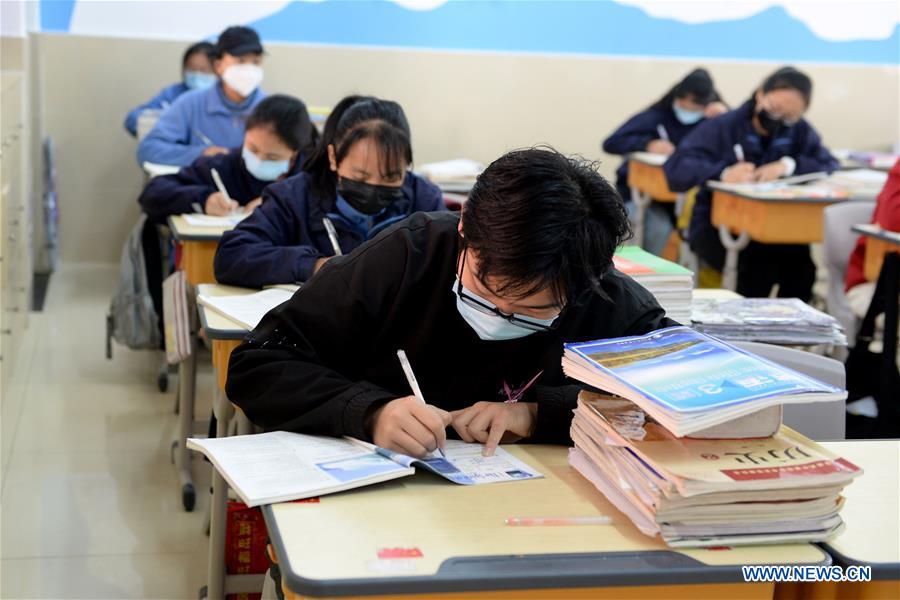
Editor's note: Iram Khan is a Pakistan-based commentator on international affairs. The article reflects the author's opinions, and not necessarily the views of CGTN.
The founding of the Tibet Autonomous Region today marks its 55th anniversary. The regional People's Congress, which is the local legislature, was established on September 1, 1965, setting the stage for a journey of development and prosperity.
Chinese President Xi Jinping addressed the seventh "Central Symposium on Tibet Work" in the backdrop of the anniversary and tabled some definite guidelines to set the policy direction of putting Tibet on a new era of growth.
A look at some of these directives gives an idea where Tibet's future is headed.
Most importantly, Xi's speech stressed upon security-related issues. It is a fact that people can work to improve their lives only in a safe and secure environment.
When they are provided with physical security or when their financial concerns are secured, they can dedicate all energies to their professional activities.
President Xi, therefore, called for ensuring stability and solidifying border defense in Tibet.
Educational measures in this regard are extremely necessary to guide the public in keeping a close guard against separatist activities.
It is pertinent to remember here that there were some elements in the recent past trying to instigate separatism in Tibet from abroad. China took timely steps at the diplomatic front – although as a retaliation – to nip the evil in the bud.
As the trend can be seen, such elements target the various ethnic minorities of China that form a core part of the national mainstream. By making attempts at sowing discord, these actors try to take aim at national unity.
If ethnic solidarity remains strong, there is no chance that their nefarious designs succeed in achieving their agenda.
President Xi recommended the incorporation of patriotism in the process of education, which is something that will, by default, discourage the emergence of any negative tendencies.
The sense of national unity also strengthens when the central and local governments take care of the well-being of the people. They provide economic opportunities and make the citizens a part of the national economic effort.
Concurrently at the individual level, people's economic conditions improve and augment the national poverty eradication program.
China is on the brink of defeating the menace of absolute poverty and, at such a critical juncture, President Xi rightly pointed out that more work, measures and support are needed to consolidate the achievements in poverty alleviation.
Although the country's successes against poverty have largely been due to a rapid development process, further progress will be achieved if the focus shifts to high-quality development. Innovation, which forms the backbone of this next stage, is already a priority under a national plan to make China a global leader in the field by 2035.
At the same time, the government is lifting the infrastructure network to provide the foundations for expanding trade, increasing connectivity and bringing inclusiveness to the remotest of areas. President Xi cited the impending completion of the Sichuan-Tibet Railway line and assured that the provinces of Sichuan, Yunnan, Gansu and Qinghai will continue to support Tibet.

Tibetan students have an online class in Hefei No. 35 Middle School in Hefei, east China's Anhui Province, March 23, 2020. /Xinhua
Tibetan students have an online class in Hefei No. 35 Middle School in Hefei, east China's Anhui Province, March 23, 2020. /Xinhua
There are several examples in the world where progress and prosperity brought affluence into people's lives but proved to be calamitous for the environment. That is why Xi talked about conserving the ecology of the Qinghai-Tibet Plateau when discussing the development work.
He emphasized the advancement of scientific research on the plateau since ecological conservation contributes to the survival of the Chinese nation.
President Xi spoke about some governance issues as well. Most significantly, he called upon making endeavors to build a new modern socialist Tibet.
For this purpose, the region has to be culturally advanced and harmonious. Only then it will be able to remain united and prosperous.
The process started with the 18th Communist Party of China (CPC) National Congress in 2012 when the adoption of policies for governing Tibet on modern lines was taken up.
A system of socialism with Chinese characteristics and ethnic autonomy has since been pursued which allows ethnic groups to enhance recognition of the Chinese nation, the Chinese culture and the CPC.
Implementing CPC's policies is a prerequisite for governing Tibet into its new era. A long-term commitment to the policies of the Central Committee will guarantee support from the central government as well as from the whole country.
With leadership teams building at the cadre and primary levels, the capacity to address challenges will significantly enhance.
Tibet is continuing to take leaps of progress as an autonomous region. The average lifespan has almost doubled since the 1950s and last year the GDP rose by more than eight percent.
A major part of the CPC's overall work constitutes achieving sustained stability and development in Tibet, as President Xi explained.
That is why the region is on track to becoming a productive and modern part of China.
(If you want to contribute and have specific expertise, please contact us at opinions@cgtn.com.)